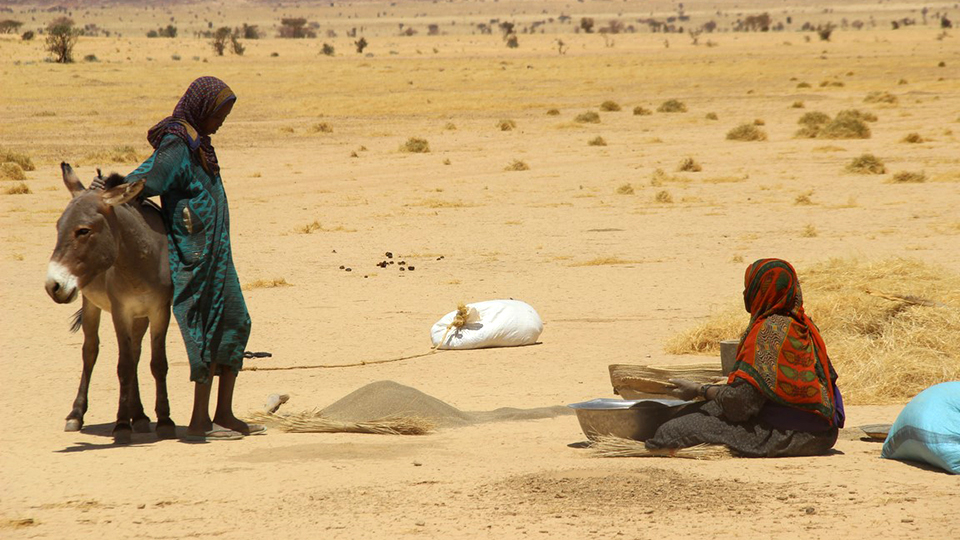First published on 01/30/2021, and last updated on 02/11/2025
Integrating gender justice in the mainstreaming of biodiversity can be a highly effective way to secure universal human rights for women.
By Vivienne Solis Rivera (Honorary Member of the ICCA Consortium), CoopeSolidar
Today, more than ever before, the role of women and girls in biodiversity conservation is becoming evident in a world that has been unable to change its inequitable model of development. Women have worked unceasingly to provide food security and maintain traditional knowledge and sustainable use of biodiversity and have supported collective action for greater environmental justice in their territories.
Despite all these contributions, the world still only timidly, if at all, recognizes the impact of productive, reproductive, and collective actions in the territories of life that we wish to protect. Economic poverty, together with the lack of opportunities for women in education, adolescent pregnancies, and domestic and sexual violence are a pervasive part of our societies. For the women and girls throughout the world, true positive changes can only be brought based on fundamental human rights and gender justice.
The Convention on Biological Diversity (CBD) prioritizes the conservation, sustainable use, and fair and equitable distribution of benefits from marine and terrestrial biodiversity. Integrating gender justice in the mainstreaming of biodiversity could be a highly effective way to secure universal human rights for women in Indigenous peoples and local communities across the world.
In the coming years and decades, Parties to the CBD should clearly and effectively address gender issues within its framework through at least two key avenues.
First, the new global framework for biodiversity, which is being prepared for approval at the 15th meeting of the Conference of the Parties to the CBD, is an excellent opportunity to develop a strategy imbued with a clear gender vision – one that recognizes women’s and girls’ diverse contributions to conservation. For State Parties, civil society, and private companies alike, the new global biodiversity framework is an opportunity to improve the wellbeing of women and girls across the world.
Second, the ongoing CBD process to draft a new gender plan of action provides another opportunity for decisive action on gender in biodiversity mainstreaming.
These new strategic lines of action can only be fruitful if civil society and other actors first thoroughly reflect upon the evaluation of the previous Strategic Plan for Biodiversity and Aichi Targets.
This official evaluation – the fifth edition of the Global Biodiversity Outlook (GBO-5) – offers many significant lessons and a clear path of action. Complementary to GBO-5, the evaluation by Indigenous peoples and local communities and supporting civil society organizations, titled Local Biodiversity Outlooks 2, reviews the practical action undertaken up to 2020. LBO-2 makes it clear that in the face of current challenges, progress is possible only if certain vital issues are addressed, including tenure (securing land, customary and community rights), food security and sovereignty, governance (decision making and participation), local economies, and incentives and finance.
The importance of these issues has been further underscored during the COVID-19 pandemic. The experience of the pandemic showed us that the revitalization and strengthening of traditional knowledge, the relationship between food security and health, and the strengthening of organizational capabilities are fundamental for gender equity and equality.
Civil society groups and organizations working with a vision of gender equity and equality have reviewed the drafts presented by the CBD for the post-2020 global biodiversity framework and offered their contributions in the form of a second draft that is now available for global discussion.
Viewed from a gender perspective or a feminist lens, the draft appears to leave out certain fundamental issues concerning gender and the conservation of biodiversity.
We are asking for integration of human rights and the human rights-based approach into the framework. Rights to land, marine areas and access to resources in these ecosystems must be recognized as a central challenge impeding gender equity and equality in biodiversity and fisheries conservation.
(This article was first published on Yemaya, ICSF’s Newsletter on Gender and Fisheries.
This is an edited version of the article for our website.)
Featured image: Women in Ennedi Plateau is located in the northeast of Chad. Photo © Christian Chatelain
